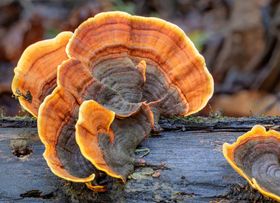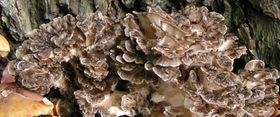Taking CBD Oil With Antidepressants: Effectiveness and Risks
Updated September 20, 2023.

Depression can manifest in many different forms, though it is usually characterised by mood problems, constant feelings of sadness, and loss of interest in previously enjoyed activities. It is rarely the result of a single event but rather as the combination of multiple factors, and symptoms can range from mild to severe.
Treatments for depression can be achieved by psychotherapy or with the use of medicines, though the most benefits are experienced with a combination of the two.
Recently, researchers are looking into CBD as a potential treatment for depression due to its claimed anxiolytic and mood-boosting effects. This article will look at the efficacy of using CBD as a treatment for depression, as well as the potential risks of using it in conjunction with other antidepressants.
Is CBD Oil Good for Depression?
The nature of this question can only be answered if you address the many different factors that contribute to an overall case of depression. Not all types of depression are the same, and different individuals will manifest different symptoms. Generally, although relatively limited, there is some scientific evidence to suggest the effectiveness of using CBD to treat depressive conditions at their core.
However, there is more evidence to suggest CBD's effectiveness at treating a number of other mental health problems commonly experienced in conjunction with depression. Assisting in the various secondary conditions may indirectly contribute to the management of depression and the lifting of the overall quality of life.
CBD May Be Anxiolytic
Those who suffer from depression commonly also suffer from some form of anxiety, and the same is true in reverse. There is a growing body of evidence to support the belief that CBD exhibits anxiolytic (anti-anxiety) properties in many individuals.
CBD May Reduce Stress and Improve Mood
Mammals have an inbuilt system in their bodies called the endocannabinoid system, which is believed to modulate the central nervous system and maintain homeostasis between physiology, cognition, and emotion. CBD interacts directly with this system, which may suggest why it seems to assist individuals in managing stress levels and improving their general mood.
One of the ways it does this is by changing the way your brain responds to serotonin, a hormone associated with stabilising mood and happiness.
Can Taking CBD Cause Depression?
Currently, there is no evidence (clinical or anecdotal) to suggest that CBD can actually cause depression. Although the side effects of CBD are rare and mild, they usually go away after an individual stops taking CBD. At most, CBD may cause general somnolence and fatigue, but not depression.
Some mental health problems are triggered and exacerbated by THC, the psychoactive component of cannabis. Still, there is evidence to suggest that CBD can help in both preventing these effects as well as helping to reverse them.
Can You Take CBD With Antidepressants?
"Antidepressant" is a blanket term that encompasses a multitude of different products that treat depression through many different mechanisms. However, an important similarity between most antidepressants is the way that they are metabolised by the liver.
The liver is home to a number of different enzyme systems that catalyse (speed up) reactions. Among these are the cytochrome P450 (CYP450) enzymes that are responsible for breaking down many different medications, including antidepressants. CBD is a potent inhibitor of these enzymes, and so there could be interactions with CBD and antidepressants.
What this means is that taking antidepressants with CBD oil would slow the process that these medications are metabolised, which could lead to more of the substance being left in the body at a given time and increasing the potential for adverse reactions or even overdose. It's important to note that the form of CBD doesn't matter as it exhibits the same effects and interactions once it reaches the bloodstream.
Types of Antidepressants and Their Risk Factors
Since antidepressants work in different ways, some present more risk when taken with CBD oil than others.
Selective Serotonin Reuptake Inhibitors (SSRIs) These are currently the most commonly prescribed antidepressants and work similarly to CBD in the way they prevent the reabsorption of serotonin into the brain, leading to more available serotonin and a related improvement to mood.
The most common SSRI's are:
- Citalopram (Celexa)
- Escitalopram (Lexapro)
- Fluoxetine (Prozac)
- Paroxetine (Paxil or Pexeva)
- Sertraline (Zoloft)
- Vilazodone (Viibryd)
The reason for SSRIs being the first choice for doctors is that they generally present fewer side effects than other antidepressants. Because of the nature of their operating mechanisms, taking CBD while being on any of the listed antidepressants would present similar effects, as is the case for all antidepressants belonging to a particular drug class.
Serotonin-norepinephrine reuptake inhibitors (SNRIs) These operate similarly to SSRIs and present the same level of risk, but may work better for some individuals.
Common SNRIs include:
- Duloxetine (Cymbalta)
- Venlafaxine (Effexor XR)
- Desvenlafaxine (Pristiq)
- Levomilnacipran (Fetzima)
Tricyclic antidepressants These work by increasing levels of norepinephrine and serotonin in the brain. They can be highly effective but present much more risk than other antidepressants. As such, they are only prescribed when SSRIs and SNRIs have failed. Common tricyclic antidepressants include:
- Imipramine (Tofranil)
- Nortriptyline (Pamelor)
- Amitriptyline
- Trimipramine (Surmontil)
- Desipramine (Norpramin)
Conclusion: Can CBD Benefit or Replace Antidepressants?
CBD may be more beneficial in the long term than traditional antidepressants. Dopamine, a hormone that regulates habitual behaviour through the brain's built-in reward system, is often the reason that individuals build up dependencies on drugs (pharmaceutical and illicit). Research has shown that CBD use doesn't result in similar dependencies but can exhibit the same degree of antidepressive effects.
Even though there is no definitive evidence that CBD directly interacts with antidepressants, the nature of the way they are both metabolised presents some concerns. Research into the efficacy of CBD as an antidepressant may be promising, and there is a growing body of anecdotal evidence suggesting that CBD could be used to reduce dependency on clinical antidepressants, but this should all be taken with caution.
It's not advised to simply replace prescribed medications with CBD without consulting a doctor. However, it's likely that your doctor could assist you in periodically reducing your dose of antidepressants with the hope of supplementing them with the use of CBD in the long term. Each case must be addressed individually as no two people will have the same results. Despite this, there is some hope that CBD could become a viable treatment for depression in the future.









